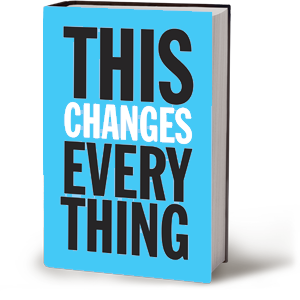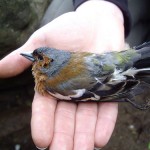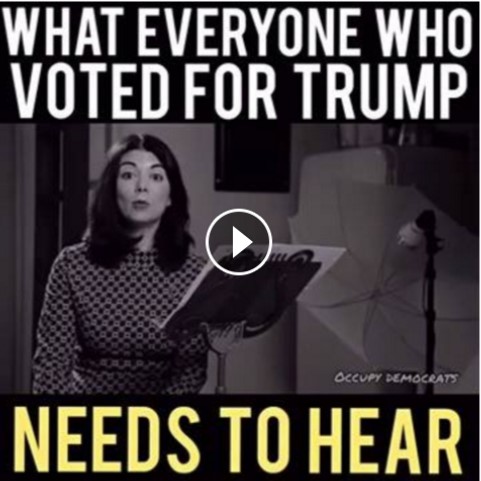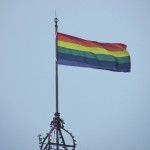 On New Year’s Eve, 2014, I found out that we have two years – until 2017 – to cut carbon emissions, or risk catastrophic global consequences from climate change. As I heard the sounds of fireworks going off outside, I was reading Naomi Klein’s This Changes Everything: Capitalism vs. the Climate. A knot started forming in the pit of stomach as I read:
On New Year’s Eve, 2014, I found out that we have two years – until 2017 – to cut carbon emissions, or risk catastrophic global consequences from climate change. As I heard the sounds of fireworks going off outside, I was reading Naomi Klein’s This Changes Everything: Capitalism vs. the Climate. A knot started forming in the pit of stomach as I read:
“In a 2012 report, the World Bank laid out the gamble implied by [the 2-degree Celsius] target [laid out in a non-binding international agreement at the 2009 U.N. climate summit in Copenhagen]. ‘As global warming approaches and exceeds 2-degrees Celsius, there is a risk of triggering nonlinear tipping elements. Examples include the disintegration of the West Antarctic ice sheet leading to more rapid sea-level rise, or large-scale Amazon dieback drastically affecting ecosystems, rivers, agriculture, energy production, and livelihoods. This would further add to 21st-century global warming and impact entire continents.’ In other words, once we allow temperatures to climb past a certain point, where the mercury stops is not in our control.”
I was sitting in bed, cozy and warm, in my parents’ house, on a visit home for the holidays. My niece and nephew could be heard upstairs, stomping loudly on the floor the way kids do, as they eagerly embraced their first-ever wakeful New Year’s Eve midnight. I didn’t want to believe what I had just read. I didn’t want to believe Klein when she said, “Preliminary data shows that in 2013, global carbon dioxide emissions were 61 percent higher than they were in 1990, when negotiations toward a climate treaty began in earnest.”
But why wouldn’t I believe her? She’s a well-respected, award-winning journalist who provides citations for everything she says. The only reason not to take her message very, very seriously would be because I couldn’t handle it.
Klein addresses our difficulty with facing the climate issue in her book. She does it with compassion, refusing to place the blame on the selfishness of individuals, or the general stupidity of humankind. Instead, she carefully explores the major forces that have gotten us into this untenable situation, and offers many robust ideas for how we could use this crisis as an opportunity to change the world for the better. However, she never makes the manifestation of those ideas sound easy; the time for incremental change is over, and the only thing that will alter the course of climate change is a major, grassroots, social movement. She points out:
“But we need not be spectators in all this: politicians aren’t the only ones with the power to declare a crisis. Mass movements of regular people can declare one too… Slavery wasn’t a crisis for British and American elites until abolitionism turned it into one. Racial discrimination wasn’t a crisis until the civil rights movement turned it into one. Sex discrimination wasn’t a crisis until feminism turned it into one. Apartheid wasn’t a crisis until the anti-apartheid movement turned it into one… if enough of us stop looking away and decide that climate change is a crisis worthy of Marshall Plan levels of response, then it will become one, and the political class will have to respond…”
That night I slept fitfully, periodically awakening in a state of shock and concern. In my mind’s eye were monarch butterflies covering the trees in their winter sanctuary in Mexico. A couple days earlier I had watched an IMAX movie on monarchs with my niece and nephew, and, as is typical for me, I spent much of the movie with tears streaming out of my eyes because of the sheer wonder and beauty in front of me. (As I discreetly wiped my face and blew my nose as the movie ended, my niece whispered to me with disbelief, “For a minute I thought you were crying!”)
While trying to fall asleep on New Year’s Eve, I felt crushed by the thought, “Maybe we’ll manage to get our act together before all of humanity has died, but the monarchs will definitely be gone.” Their critical winter habitat is already threatened by climate change. The polar bears and moose will also be gone. So many species, so many ecosystems, so much beauty, so many people… gone.
So, what did I do with my new knowledge about the urgency of the climate issue? The next day I woke up and had a cup of coffee with my family. We chatted about snowboarding, iPad apps, food, and my parents’ impending retirement. We enjoyed simply being near one another. Later in the day I went out to lunch with my mom, and then we spent the evening hours whooping with excitement in front of a couple great games of college football. Every time the thought of global devastation crept into my mind I pushed it away, wondering inwardly how that was even possible.
There was no way I was going to ruin this time with my family by talking about climate change. How would I even begin, anyway? How could I possibly bring up the topic without creating defensiveness and aversion in my loved ones? I myself am very familiar with the tense, reactive resistance that can arise in one’s body and mind when someone brings up an issue that might imply one is doing something wrong. After all, the simple joys we were sharing during the holidays were exactly the sort of thing worth protecting from the ravages of climate change.
I recognized that part of me was worried about jumping on another “the world is ending!” bandwagon, only to find the world doesn’t end after all. Throughout human history people have foretold doom. Life has always gone on, often even improving, and we look back on those who were so concerned with a mixture of derision and pity. Unfortunately, Naomi Klein and the many scientists and organizations she cites are not nut-jobs. Klein makes an extremely convincing case that, despite the many times throughout history people have cried wolf, this time there really is a wolf, and we ignore this warning at our peril. And the only thing we have to do to get eaten by this wolf is nothing.
“At least,” I thought, “I can write about this on my blog.” But then I thought about how I have slowly but surely built my readership over the last four months, and how people might stop reading my blog if it talks too much about climate change. Then I thought about the monarch butterflies and felt I didn’t really have a choice.
Seriously, people. If you do one thing in response to climate change, please please please read Naomi Klein’s book, This Changes Everything. (Click here to purchase it; it’s available as an ebook for only $12.99.) Beautifully and concisely written, this book explains the problem of climate change and many of its causes, discusses the challenges we face as individuals and as a society in addressing it, and presents a vision for the future that we can all get behind. It’s not all doom and gloom. In fact, it’s very inspiring! I deeply respect Klein’s insight when she says, “If opposition movements are to do more than burn bright and then burn out, they will need a comprehensive vision for what should emerge in the place of our failing system, as well as serious political strategies for how to achieve those goals.” In order to be able to bear facing the truth, we need a positive way to respond.
Sacrificing everything for the false god called “The Economy” and adhering to the dogma of perpetual, unregulated growth undermines not just the health of our planet but everything we value as human beings. Action doesn’t have to mean simply doing without; Klein points out that we’ve been doing an awful lot of that lately anyway, ostensibly to boost The Economy (capitals mine) with various austerity measures. Among many other things, action can mean the re-empowerment of individuals and local communities, enrichment of our daily lives as we prioritize sustainability and human connections, and a shift in values away from the never-ending pursuit of profit back toward the things that really matter in life.
Like me, you may feel a resistance to adding “concern about climate change” to your to-do list. After all, there’s countless “issues” we “should” care about, right? World hunger, injustice, racism, homelessness, the list goes on. Who has the time? Who has the energy? The good – and terrible – thing is, all of these things are related, and they all come to a head in climate change. To quote Klein once more:
“…underneath all of this is the real truth we have been avoiding: climate change isn’t an ‘issue’ to add to the list of things to worry about, next to health care and taxes. It is a civilizational wake-up call. A powerful message — spoken in the language of fires, floods, droughts, and extinctions — telling us that we need an entirely new economic model and a new way of sharing this planet. Telling us that we need to evolve.”
Quotations from This Changes Everything: Capitalism vs. the Climate by Naomi Klein, 2014, Simon & Schuster, New York, NY.












